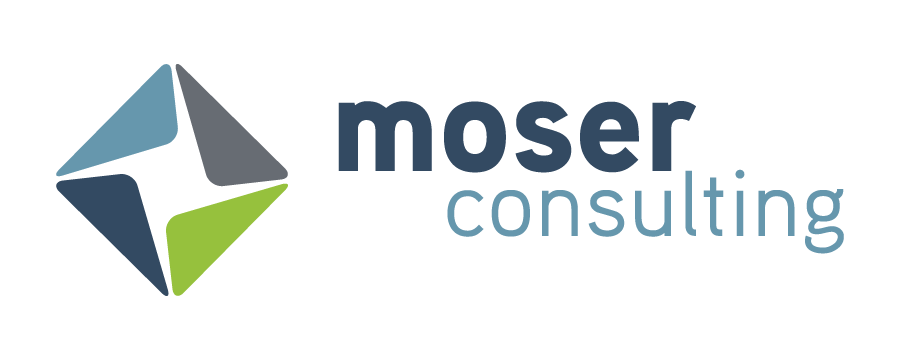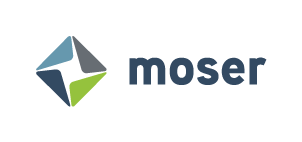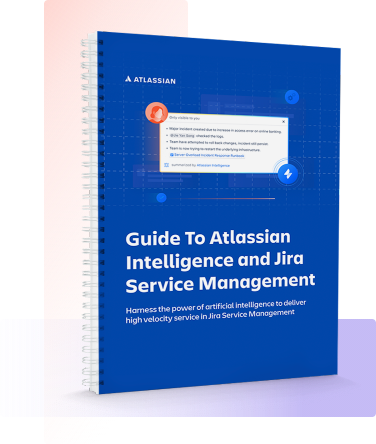Exciting News: Atlassian Achieves FedRAMP Certification!
Atlassian Professional Services
Moser’s team of Atlassian certified experts can assist with Implementations, Migrations, Optimizations and Managing your Atlassian tools.
Implementation
Our clients rely on Moser’s team of experts to help guide them with their Atlassian system. Our Atlassian Architects listen to the client’s requirements to develop a solution that meets their needs.
Optimization
The certified experts at Moser have the experience and knowledge to optimize your Atlassian environment. By listening to the clients needs, we are able to make improvements by matching those needs with Standards and Best Practices.
Migrations
Atlassian Server or Data Center: Moser’s experts help our clients to plan and seamlessly move to cloud.
Other Vendors: If your decision is to move away from another system to Atlassian, let Moser help. We’ve assisted numerous clients move from systems like Service Now, Avanti and more.
Consolidation: Whether it’s through M&A or just merging instances within a company, Moser has the experience to bring the systems together.
Managing Atlassian Tools
Let Moser help with the ongoing support of your Atlassian environment. Many times, a user is assigned the responsibility of managing/administering Atlassian tools simply because they are a “Power User”. Moser can design a solution that fits your needs, whether using Moser’s Managed Services or on an as needed basis. We have the experts that can help!
Property Management Use Case:
Jira Service Management (JSM) for Property Management Organizations
Background
Moser worked with a large, Property Development and Management company that develops, maintains, and manages multiple residential and commercial properties. Their responsibilities include maintenance requests, tenant inquiries, lease agreements, and property inspections. To streamline their operations and enhance customer satisfaction, TWG Development decided to implement Jira Service Management (JSM) as their centralized service desk solution.
Moser configured Jira Service Management with appropriate request types, workflows, and SLAs tailored to their property management needs.
Internal Staff began using JSM as a means to submit requests related to their internal business processes.
JSM was then extended to Tenants by providing access to the Jira Service Management portal to submit maintenance requests.
Centralized Service Desk for Internal Operations
Moser implemented Jira Service Management as a centralized service desk to handle various internal tasks and requests across departments within the organization.
Custom request types are configured to accommodate different internal processes, including maintenance requests, vendor contracts, lease agreements, and facility management tasks.
Maintenance Request Management:
Maintenance requests from property managers or tenants can be submitted through the JSM portal or email integration.
Upon receiving a request, JSM categorizes requests based on the nature of the issue (e.g., plumbing, electrical, HVAC), and assigns them to maintenance technicians for resolution.
Tenant Relations and Lease Management:
JSM can be used to manage tenant inquiries, lease agreements, and requests for property inspections or repairs.
Custom request types are created for handling lease renewals, move-in/move-out inspections, rent payment issues, and tenant complaints.
Vendor Management and Facility Operations:
Vendor Management and Facility Operations oversee vendor contracts, service agreements, and facility maintenance tasks using JSM.
Requests related to vendor onboarding, contract renewals, service requests (e.g., landscaping, cleaning), and facility repairs are logged and managed within the platform.
Automated Workflows and SLA Management:
Automated workflows are configured to route requests to the appropriate teams or individuals based on predefined criteria, ensuring prompt resolution and accountability.
Service level agreements (SLAs) are established to prioritize and resolve requests within specified timeframes, enhancing service delivery and tenant satisfaction.
Benefits
Improved Efficiency: Jira Service Management streamlines internal operations by centralizing task management, automating workflows, and providing visibility into request status and progress.
Enhanced Collaboration: Cross-departmental collaboration is facilitated through a unified platform, enabling seamless communication and coordination among property managers, maintenance technicians, tenant relations specialists, and other stakeholders.
Transparency and Accountability: Transparent workflows, SLA tracking, and reporting features promote accountability and ensure timely resolution of tasks, leading to improved tenant satisfaction and operational performance.
Scalability and Customization: JSM's flexibility allows organizations to adapt and customize the platform to meet evolving business needs, whether managing a small portfolio of properties or scaling operations for larger real estate portfolios.
Conclusion
By leveraging Jira Service Management for internal operations, the organization optimizes property management processes, enhances collaboration among teams, and delivers superior service to tenants and property owners. The platform's robust features, including customizable workflows, SLA management, and reporting capabilities, empowering organization to streamline operations, improve efficiency, and drive success in the competitive real estate market. Requests are successfully resolved, ensuring the satisfaction of property managers and tenants is ensured.
All communication and actions related to the requests are logged within Jira Service Management for future reference and auditing purposes.
Property management staff can analyze data and metrics within Jira Service Management to identify trends, optimize resource allocation, and enhance overall service efficiency.
Insurance Industry Use Case:
Streamlining Project Management Operations with Jira Software for PMO
Overview
Jira Cloud offers a comprehensive platform for Project Management Offices (PMOs) to streamline and optimize their project management operations. By leveraging Jira Cloud, PMOs can centralize project tracking, standardize processes, enhance collaboration, and gain valuable insights for better decision-making. Below is a detailed use case illustrating how a PMO can utilize Jira Cloud to effectively manage projects within an organization.
Use Case Scenario
A large malpractice insurance agency operates a PMO responsible for overseeing multiple projects across various departments, including software development, marketing campaigns, and infrastructure upgrades. The PMO aims to improve efficiency, visibility, and alignment across all projects while ensuring adherence to established standards and best practices.
Centralized Project Tracking: The PMO utilizes Jira Cloud as a centralized platform for tracking all projects within the organization. Project managers create dedicated project boards within Jira Cloud, representing each initiative or workstream. These boards serve as a single source of truth, containing all relevant project information, tasks, timelines, and progress updates.
Standardized Processes and Workflows: Jira Cloud enables the PMO to establish standardized processes and workflows for project management. Customizable workflows are configured within Jira, aligning with the organization's project management methodology (e.g., Agile, Kanban, Waterfall). These workflows define clear stages, approval gates, and dependencies, ensuring consistency and accountability across projects.
Collaborative Work Environment: Project teams collaborate seamlessly within Jira Cloud, fostering communication and transparency. Team members can easily assign tasks, share documents, and engage in discussions directly within the platform. Features such as mentions, comments, and notifications facilitate real-time communication, enabling stakeholders to stay informed and engaged throughout the project lifecycle.
Performance Monitoring and Reporting: Jira Cloud provides robust reporting and analytics tools for performance monitoring and reporting. The PMO leverages built-in dashboards, custom reports, and advanced analytics to track key performance indicators (KPIs), measure project progress, and identify potential bottlenecks or risks. Insights derived from Jira Cloud enable the PMO to make data-driven decisions and course corrections as needed.
Continuous Improvement and Iteration: As projects progress, the PMO conducts regular reviews and retrospectives to gather feedback and identify areas for improvement. Leveraging Jira Cloud, the PMO captures lessons learned, implements process enhancements, and iterates on best practices across projects. This iterative approach fosters a culture of continuous improvement within the organization, driving efficiency and innovation.
Benefits
Improved visibility and transparency across all projects.
Enhanced collaboration and communication among project teams.
Standardized processes and workflows for consistency and efficiency.
Optimal resource allocation and capacity planning.
Data-driven decision-making based on real-time insights and analytics.
Continuous improvement through feedback loops and iteration.
Conclusion
By leveraging Jira Cloud, the PMO at the agency successfully streamlines project management operations, drives efficiency, and fosters collaboration across the organization. With centralized project tracking, standardized processes, collaborative work environments, and data-driven insights, the PMO can effectively oversee projects, mitigate risks, and deliver value to stakeholders.

The Moser Difference
With nearly 30 years of experience, we have built a reputation of trust and dependability. No matter where you are in your technology journey, we have the people and the expertise to help. Our customized approach is based on your needs, and we don’t subscribe to an “out of sight, out of mind” policy. Once we sign on, we’re with you for the long haul to ensure sustainable, long-term success and guidance, even after our initial project is done.
Let Moser help with the ongoing support of your Atlassian environment. Many times, a user is assigned the responsibility of managing/administering Atlassian tools simply because they are a “Power User”. Moser can design a solution that fits your needs, whether using Moser’s Managed Services or on an as needed basis. We have the experts that can help! Contact marketing@moserit.com for more info or a demo.





